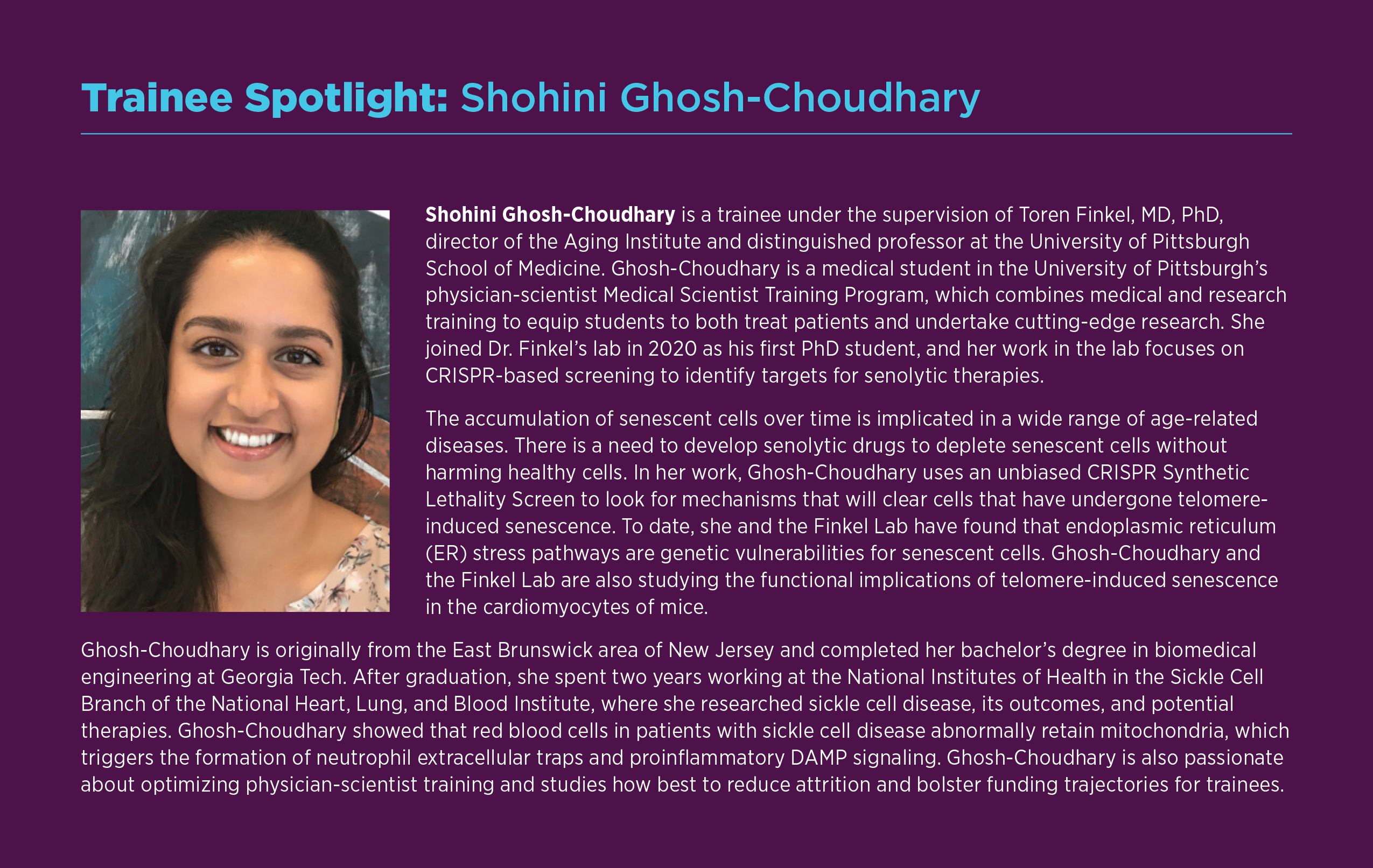Shohini Ghosh-Choudhary is a trainee under the supervision of Toren Finkel, MD, PhD, director of the Aging Institute and distinguished professor at the University of Pittsburgh School of Medicine. Ghosh-Choudhary is a medical student in the University of Pittsburgh’s physician-scientist Medical Scientist Training Program, which combines medical and research training to equip students to both treat patients and undertake cutting-edge research. She joined Dr. Finkel’s lab in 2020 as his first PhD student, and her work in the lab focuses on CRISPR-based screening to identify targets for senolytic therapies.
The accumulation of senescent cells over time is implicated in a wide range of age-related diseases. There is a need to develop senolytic drugs to deplete senescent cells without harming healthy cells. In her work, Ghosh-Choudhary uses an unbiased CRISPR Synthetic Lethality Screen to look for mechanisms that will clear cells that have undergone telomereinduced senescence. To date, she and the Finkel Lab have found that endoplasmic reticulum (ER) stress pathways are genetic vulnerabilities for senescent cells. Ghosh-Choudhary and the Finkel Lab are also studying the functional implications of telomere-induced senescence in the cardiomyocytes of mice.
Ghosh-Choudhary is originally from the East Brunswick area of New Jersey and completed her bachelor’s degree in biomedical engineering at Georgia Tech. After graduation, she spent two years working at the National Institutes of Health in the Sickle Cell Branch of the National Heart, Lung, and Blood Institute, where she researched sickle cell disease, its outcomes, and potential therapies. Ghosh-Choudhary showed that red blood cells in patients with sickle cell disease abnormally retain mitochondria, which triggers the formation of neutrophil extracellular traps and proinflammatory DAMP signaling. Ghosh-Choudhary is also passionate about optimizing physician-scientist training and studies how best to reduce attrition and bolster funding trajectories for trainees.


